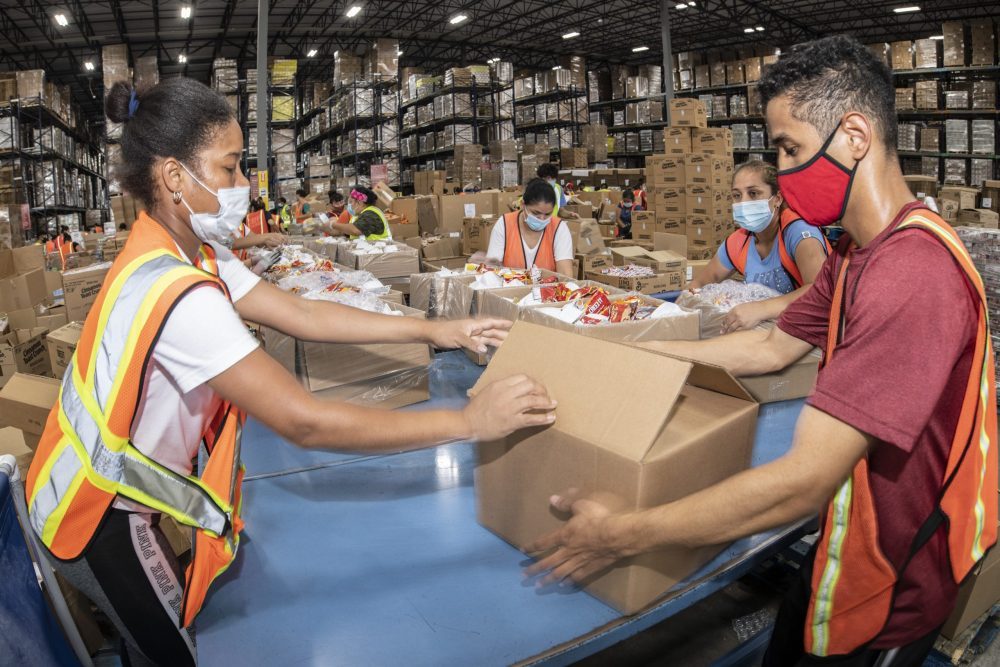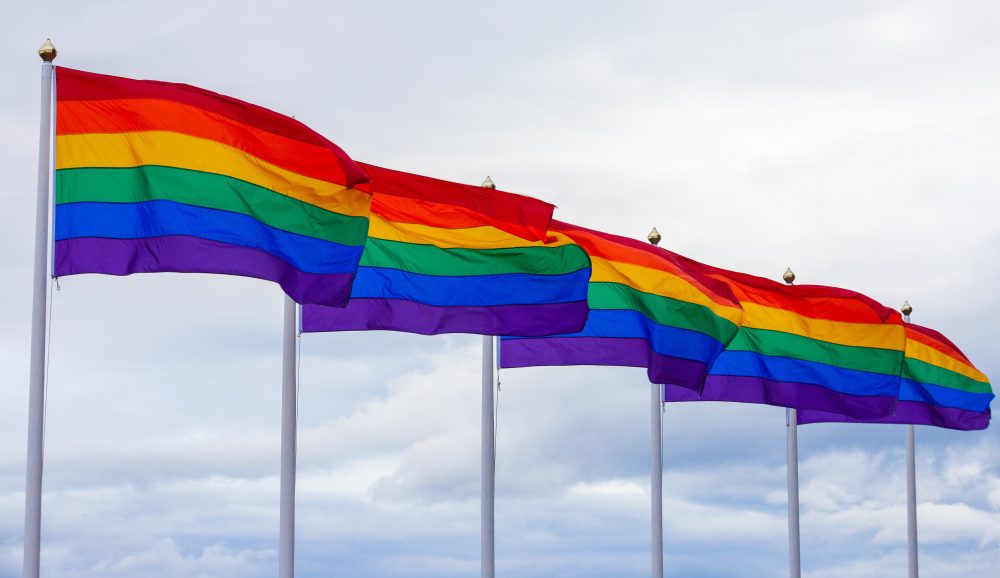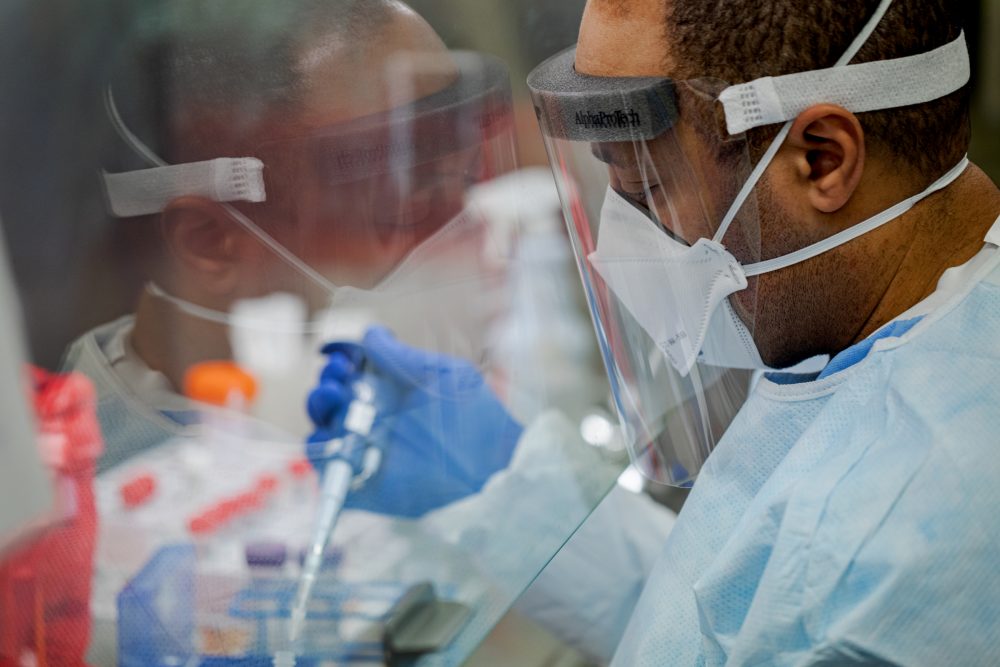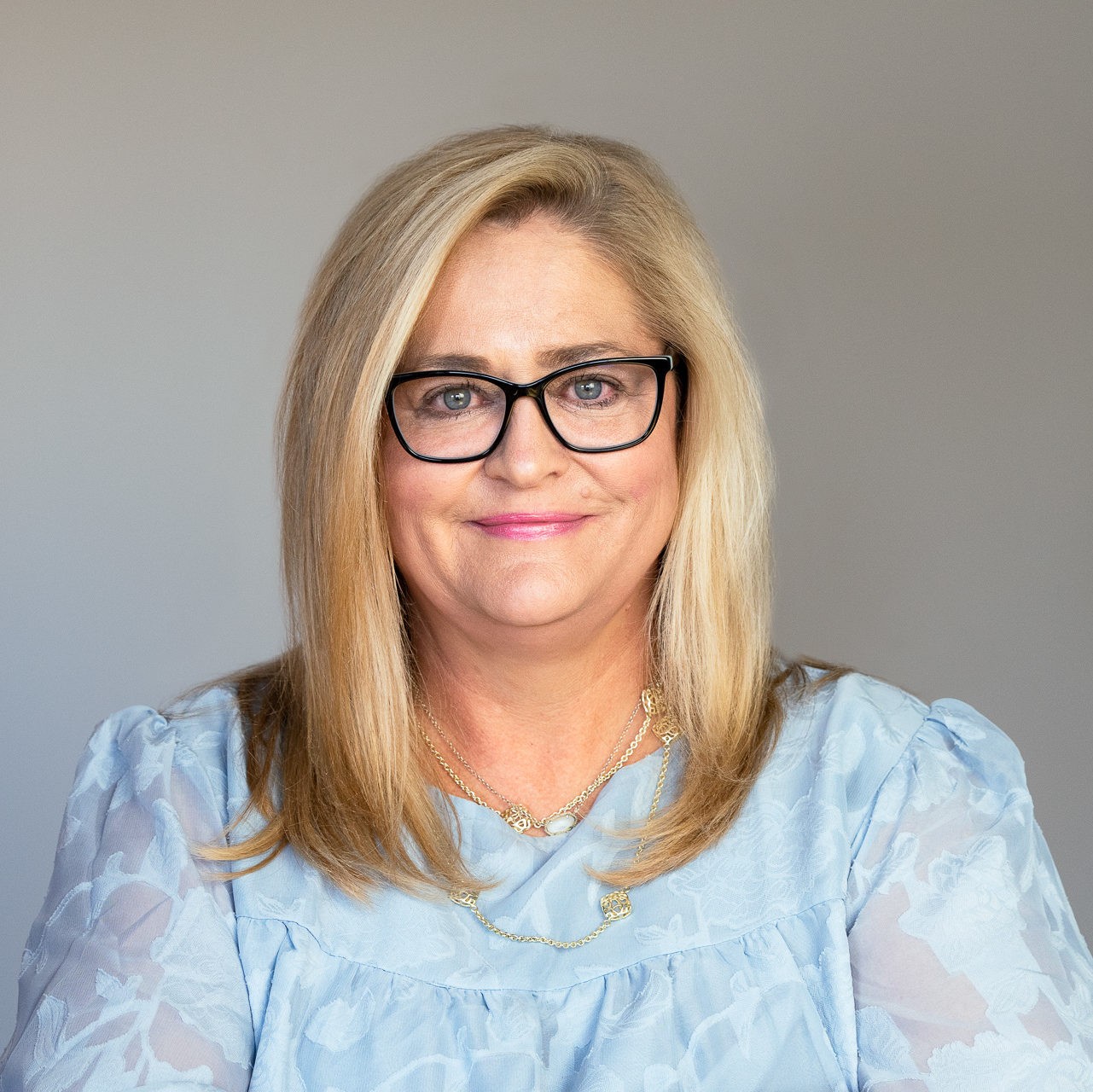$4.3 Million in Sixth Round Grants from CDP COVID-19 Response Fund
Our sixth and largest round of grants from the CDP COVID-19 Response Fund advances the work of more than 50 organizations addressing the effects of the pandemic in seven states. With significant funding and direction from the Humana Foundation, we focused on supporting local organizations providing equitable response and recovery for communities in Florida, Georgia, […]

Our sixth and largest round of grants from the CDP COVID-19 Response Fund advances the work of more than 50 organizations addressing the effects of the pandemic in seven states. With significant funding and direction from the Humana Foundation, we focused on supporting local organizations providing equitable response and recovery for communities in Florida, Georgia, Kentucky, Louisiana, Ohio, Tennessee and Texas.
To inform our grantmaking approach for this generous gift, we conducted extensive state-by-state research. We started by reviewing current COVID-19 case numbers; case numbers and deaths per capita; whether numbers were increasing, decreasing or stabilizing; and statewide poverty rates. Then we did a deeper data dive to verify each state’s minority population percentage, social vulnerability ranking, population over 60, and “health ranking” (which includes health indicators like number of uninsured, access to health care, etc.) Based on this information, we ranked the states by need to determine their relevant funding levels.
Through meetings with colleagues, friends of CDP, and funders with local ties or connections, we gathered additional details on the effects of the pandemic in each state, as well as discovered organizations working to prevent, contain and respond to COVID-19 effects.
As always, we used an equity lens when considering organizations. Our priorities were to fund local organizations focused on serving those populations most disproportionately impacted by this disaster. And whenever possible, we sought out organizations led by Black, indigenous and people of color (BIPOC), and/or those with leaders who represent the communities they serve. I met with about 65 organizations to discuss their response and planned work for equitable recovery.
Using our comprehensive data research and community needs assessments, we determined those organizations that received a request for proposal (RFP). We are pleased to announce the following grants to 54 organizations for a total of $4,339,000. Below are descriptions of the grants and links to more information about the organizations doing this amazing work.
In Louisiana:
- Sceptre Foundation — $60,000 to support the Black Family Initiative in Baton Rouge and the COVID-19 Family Condition and Behavioral Health Intervention project.
- Grace at the Greenlight — $75,000 to provide for the basic needs of the unsheltered homeless in New Orleans during the COVID-19 pandemic. This includes food (hot meals) and water, as well as hygiene supplies and education on social distancing and virus prevention.
- New Orleans Family Justice Center — $150,000 to promote long-term recovery, stabilization and self-sufficiency for vulnerable immigrant families impacted by the COVID-19 crisis.
- Imagine Water Works — $125,000 to support Imagine Water Works’ response to the COVID-19 pandemic in Louisiana, in addition to preparedness for the concurrent disasters of COVID-19 and hurricane season. Through its Mutual Aid Response Network, Imagine Water Works will focus on resourcing, connecting and supporting vulnerable populations in New Orleans and Houma.
- Crescent Care — $125,000 to help vulnerable individuals access health care, COVID-19 testing and screening, and other services; enroll in Medicaid coverage; and understand how to use telehealth services. The project will particularly help the Black community, which has experienced a significantly disproportionate COVID-19 death rate.
- Culture Aid NOLA — $90,000 to provide no-barrier, free food distribution and information dissemination to New Orleans populations most affected by the societal impact of COVID-19 and most at risk of economic collapse from widespread job loss and lack of public or private safety nets.
- Baton Rouge Community College Foundation — $50,000 to provide technology to support remote student services — laptops, software, remote meeting capacity (i.e. Zoom, Microsoft Teams, etc.) — for faculty and staff, along with training for all constituents to help fulfill the mission of Baton Rouge Community College.
- MetroMorphosis — $100,000 to help Baton Rouge area communities most affected by COVID- 19 implement a response that unites residents and indigenous institutions in leading equitable recovery efforts.
- Sexual Trauma Awareness & Response (STAR) — $125,000 to manage the increase in requests for sexual assault response and counseling services due to the effects of the pandemic in central and south Louisiana.
- H.O.P.E. Ministry of Pointe Coupee — $20,000 to support and expand the capacity of food pantry and client programs that provide critical services to the vulnerable and at-risk populations in Pointe Coupee Parish.
In Texas:
- Jubilee Park & Community Center — $60,000 to provide access to neighborhood safety, food security, emergency financial assistance, transportation to essential needs, and educational enrichment for its neighbors in a 62-block area of southeast Dallas.
- Houston Immigration Legal Services Collaborative — $75,000 to help member and partner agencies increase immigrant client capacity to meet basic needs through this pandemic.
- Texas Workers Defense Project — $100,000 to help low-wage, undocumented workers and their families in Austin, Dallas and Houston stay safe, healthy and financially stable during the COVID-19 pandemic by: 1) educating immigrants about their labor rights, workplace safety and resources; 2) providing immigrant workers with legal advice and support for employment rights issues; and 3) advocating for local, state and federal policy changes and assisting with policy enforcement.
- Harmony Community Development Corporation — $75,000 to provide emergency and relief assistance including nutritional food, teletherapy counseling, and rental and utility assistance to families impacted by COVID-19. Harmony will also offer training and barrier removal resources to assist families with achieving self-sufficiency and livable wages.Harmony targets residents of the South Oak Cliff area of Dallas, with additional concentration throughout the southern sector of Dallas, including Cedar Hill, DeSoto, Duncanville and Lancaster.
- CrowdSource Rescue — $40,000 to continue organizing volunteers for no-contact food deliveries to seniors and high-risk residents in 11 southeast Texas counties.
- Rainbow Days — $65,000 to support children’s social-emotional development and meet tangible needs, the multifaceted COVID-19 Response Efforts include: 1) two weeks of outdoor summer camp (including recreation, interactive STEM classes and arts experiences) for homeless children, practicing social distancing and with other safety protocols in place; 2) care packages with learning activities and tangible items to enrich homeless children’s development; 3) monthly deliveries of food, cleaning supplies and toiletries for low-income families living in motels; and 4) mental health support for at-risk youth through virtual check-ins and care packages.
- Square Mile Community Development — $60,000 to provide reduced-cost or free fresh produce, food items, and nutritional support and education to families impacted by COVID-19 in neighborhoods designated as food deserts by the U.S. Department of Agriculture (USDA). The grant also supports the PATH program which focuses on economic recovery for limited resource, women, and minority owned businesses and entrepreneurs who have faced economic hardships as a result of the pandemic. Services will be provided in the Panhandle of Texas in and near Amarillo.
- RAICES — $120,000 to meet the mental and behavioral health needs of refugee families who RAICES resettles in the San Antonio area. The program helps ensure the security and stability of families who have been affected by COVID-19.
- Texas Tribune — $50,000 to give Texans access to nonpartisan news and information about the coronavirus pandemic and related statewide issues. The Tribune will create data visualizations, maintain data explorers and produce engagement events to convey critical information and promote informed public conversations.
In Georgia:
- Georgia Budget & Policy Institute — $125,000 to inform Georgia’s short-, medium- and long-term policy response to the pandemic. By addressing core issues related to health, education, workforce and the social safety net, this project advances the state’s equitable and resilient recovery.
- Public Broadcasting Atlanta — $110,000 to ensure people are informed and equipped to safely return to work and social activities, covering emerging hotspots and focusing on public policies that address economic and health equity. Additionally, the project will provide vital academic support by sustaining free tutoring for students most impacted by remote learning and other disruptions.
- Atlanta Mission — $95,000 to expand and sustain basic emergency needs including: meals, shelter, childcare, facility sanitation, client health education and screenings, and security and maintenance for Atlanta’s homeless population.
- Agape Community Center — $105,000 to support the “Camp in the Box” experience, specifically for the students enrolled in Camp Jump Smart (K-2). Each box contains two weeks’ worth of materials and a variety of fun activities. Students will receive a new box every two weeks to ensure effective instruction and the consistent replenishment of supplies.
- Atlanta Wealth Building Initiative — $145,000 for the immediate support of businesses owned by people of color to address the economic disruption caused by COVID-19, as well as support the long-term recovery and sustainability of the small business ecosystem.
- New American Pathways — $120,000 to respond to urgent needs related to COVID-19 in the refugee and immigrant community in Atlanta.
- Atlanta Neighborhood Development Partnership — $100,000 to mitigate the COVID-19 impact on the physical, mental and financial well-being of vulnerable residents by providing financial housing support, a safe and stable housing environment, and supportive resources.
In Florida:
- Meals on Wheels of Tampa — $50,000 to feed and care for Tampa’s vulnerable at-home and at-risk neighbors who are sheltering in their homes due to their physical and mental limitations.
- Farm Share — $75,000 to deliver fresh food to families in need throughout Florida. Farm Share connects family farmers with those who need but can’t afford fresh food.
- Jacksonville Area Legal Aid — $74,000 to expand the availability and scope of free civil legal services to meet the sudden, sharp increase in the number of income-challenged and otherwise vulnerable First Coast, Florida households at risk of basic needs insecurity due to the COVID-19 crisis.
- Solita’s House — $100,000 to prevent homelessness resulting from COVID-19 related income loss/reduction in the Tampa Bay area.
- HOPE South Florida — $75,000 to provide emergency assistance, including rental and utility assistance and employment services, to Broward County, Florida residents who have suffered income loss due to COVID-19. The grant also provides funding for expanded meals and mobile showers for those forced to live on the street along with those who are food insecure and marginally housed.
- Feeding Northeast Florida — $75,000 to increase capacity to distribute nutritious foods to meet rising needs engendered by the pandemic in northeast Florida.
- YMCA of Florida’s First Coast — $100,000 to help vulnerable populations address pressing needs that have been exacerbated by the pandemic. Specifically, projects will focus on childcare for low income families, prevention of social isolation for older adults, and resource and services assistance for immigrants.
In Tennessee:
- The Hope Station — $20,000 to provide underserved, single mothers with housing and food assistance.
- United Neighborhood Health Tennessee — $70,000 to reach some of middle Tennessee’s most vulnerable and at-risk residents and reduce COVID-19 transmission. By decreasing potential illness, hospitalization and death, the project is focused on maintaining or improving the health of this vulnerable population.
- The Equity Alliance — $40,000 to: 1) educate residents about homeowner, renter and COVID-19 rights; 2) hold bad actors and officials accountable; 3) connect residents to helpful and legitimate sources of information and financial help to deal with tornado recovery and coronavirus; and 4) build the power to ensure emergency relief funds are distributed equitably so the recovery increases the generational wealth and well-being of north Nashville’s Black community.
- Project Connect Nashville — $65,000 to meet the needs of more people specifically impacted by COVID-19 through three key program components: education, housing assistance and case management.
- Tennessee Immigrant & Refugee Rights Coalition — $70,000 to ensure that immigrant and refugee communities have equitable access to available resources through community education, referrals, ongoing case management and direct financial assistance.
- Nashville Food Project — $45,000 to meet the increased need for healthy, nutritious food for those residents hardest hit by the COVID-19 pandemic. Individually packaged meals are prepared by commercial kitchens and include produce purchased from an urban agriculture program.
- Community Resource Center Nashville — $70,000 to provide relief kits and bulk supplies to families and agencies serving the middle Tennessee region.
- Hands On Nashville — $50,000 to build capacity for Nashville-area organizations serving those directly and economically impacted by COVID-19 through volunteer recruitment and safe service support.
- Tennessee Charitable Care Network — $100,000 to provide “rapid response” financial support to TCCN members serving low income, uninsured and underinsured patients. The project enables members to sustain or strengthen their COVID-19 screening and treatment services, while also maintaining primary and chronic care services during the ongoing pandemic.
- Conexión Américas — $70,000 to meet the needs of Tennessee’s Latinx, immigrant and refugee communities in a linguistically and culturally responsive way. Response focuses on food security, emergency economic assistance, health access, small business support and digital inclusion.
In Kentucky:
- Lee Initiative — $75,000 to help independent restaurants that have been feeding their communities reopen by connecting them with sustainable products and small, local farmers. This organization is based in Kentucky but works with partners on projects in several states.
- Kentucky Refugee Ministries — $60,000 to mitigate the COVID-19 impact on Kentucky’s refugee and immigrant community by providing: 1) medical access, 2) remote education and 3) basic needs support.
- Backside Learning Center — $65,000 to provide immediate COVID-19 mitigation-related services to a community that lacks access – those working in the equine industry.
- George’s Scholar Institute — $50,000 to provide summer and fall programming to minority students, including the Reading Rocket program for grades 1 through 8, and Project Ready for college and career prep.
- Americana Community Center — $100,000 to help participants in this low-income, high-minority population attain stability through vital emergency services.
- Sowing Seeds with Faith — $75,000 to provide youth and family with the resources to be effective and efficient in their response and recovery from the pandemic.
In Ohio:
- El Puente Educational Center — $70,000 to assist Latinx families in Dayton and surrounding areas by decreasing immediate financial hardship due to the pandemic; increasing access to and mastering of technology; and augmenting mental and emotional health services.
- Catholic Charities of Southwestern Ohio — $100,000 to sustain a mental health program that strives to reduce symptom acuity and increase resiliency and self-sufficiency. The grant also supports the Food for All program that eliminates hunger by improving access to fresh and healthy food choices.
- Catholic Social Services of the Miami Valley — $100,000 to address the ongoing crisis of poverty in the Miami Valley region by supporting the Choice Food Pantry and Family Stabilization & Support (FSS), a case management and financial assistance program. Funding will increase program capacity and client emergency financial assistance to serve a greater number of families impacted financially by the COVID-19 pandemic.
- The Foodbank, Inc. (Dayton) — $75,000 to increase the capacity of the drive-thru food pantry and also provide a variety of foods to meet the growing needs of Dayton families.
In All States:
- Center for Rural Strategies (The Daily Yonder) — $80,000 to support the Daily Yonder reporting on the impact of COVID-19 on rural communities nationally and in targeted states. The goal is to help fill information gaps so that citizens and policymakers are aware of special conditions affecting rural communities.
We’re excited to see the locally-focused work of these organizations, many of whom are serving in states that have recently seen a surge in the COVID-19 virus, and continue to suffer the health, social and economic effects of the health crisis.
Another round of grantmaking is already underway as we move back to our global focus on equitable recovery. As with all CDP funds, we are here for the long haul, supporting all phases of the disaster cycle in order to build resilience in our communities and our world.
Please stay safe. Stay home when you can and wear a mask and socially distance when you can’t. But most importantly, be kind, be graceful and take care of yourselves and each other. Because we’re all in this together even if we’re at least six feet apart.
More like this

For equitable recovery from COVID-19, we can’t leave LGBTQ+ people behind

